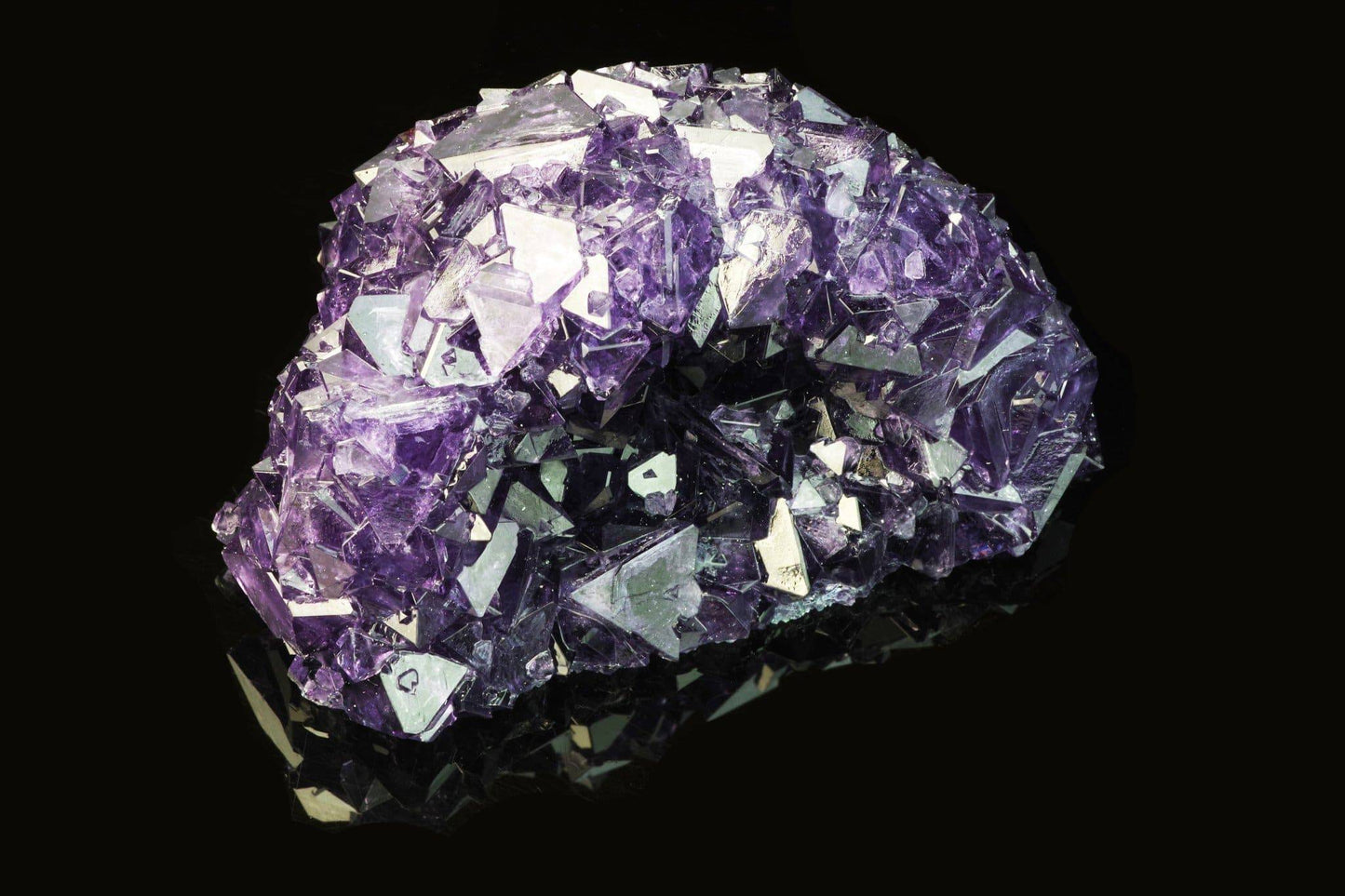www.Crystals.eu
Alum
Alum
픽업 사용 가능 여부를 로드할 수 없습니다.
Alum: The Versatile Mineral for Various Uses
Alum is a class of chemical compounds containing sulphate or selenate groups. Its crystalline structure and various applications have made it a vital substance in different industries. The specific variety and use can vary depending on the type of metal (such as potassium, sodium, or ammonium) used in its composition.
Characteristics:
- Appearance: Alum is typically found in colorless or white crystalline form. It may have a transparent or translucent look.
- Formation: Alum compounds are generally formed through the crystallization process and are often extracted from mineral sources like alunite.
- Size and Shape: It is commonly available in granules, powder, or large crystals, depending on its intended use.
Practical Applications:
- Water Purification: Alum is widely used as a flocculating agent to purify drinking water, as it helps in coagulating suspended impurities.
- Health and Personal Care: As an astringent and antiseptic, alum has been used in traditional medicine for treating minor cuts and abrasions. It's also found in some deodorants.
- Tanning and Dyeing: Alum is used in leather tanning and as a mordant in dyeing, helping pigments adhere to fabrics.
- Culinary Uses: In some cultures, alum is used in food preparation, such as pickling, to maintain crispiness.
- Fire Extinguishers: Some types of fire extinguishers contain alum, as it helps smother flames.
Metaphysical Properties:
- Protection and Stability: Some believe that alum has spiritual properties that help in protecting against negative energies and promoting stability.
- Emotional Healing: It is sometimes used in spiritual practices for emotional healing and releasing mental burdens.
Care and Handling:
- Storage: Alum should be stored in a cool, dry place away from moisture, as it's often hygroscopic.
- Safety: While commonly used, alum should be handled according to guidelines, especially if ingested or applied to the skin, as improper use can lead to irritation or other issues.
Note: Always consult the specific type of alum and its intended application, as different forms may have varied properties and uses.
Conclusion:
Alum's diverse applications range from practical uses in water treatment and personal care to symbolic and spiritual practices. Its crystalline form reflects a subtle elegance, and its many functions make it a valuable component in multiple industries. Whether you encounter alum in your daily routine or specialized applications, its multifaceted nature is sure to inspire appreciation.
Share













